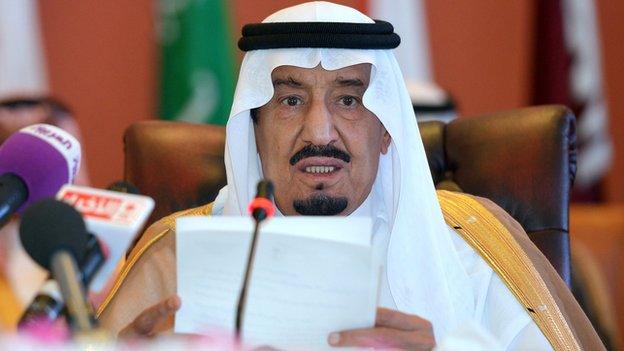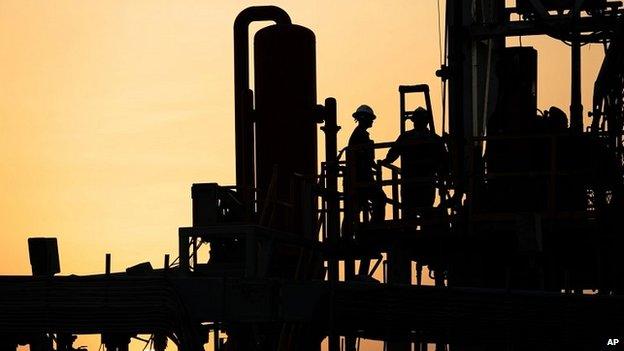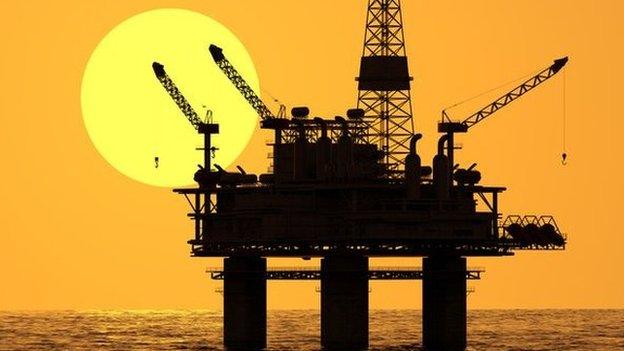Saudi Arabia oil: What next?
- Published

Most analysts expect continuity under King Salman bin Abdulaziz al-Saud
For the business world, the succession in Saudi Arabia raises one key question: will there be any change in oil policy?
The kingdom's current approach has been to spurn calls for output cuts in response to lower prices.
Most analysts expect continuity under the new leader King Salman bin Abdulaziz al-Saud.
Nonetheless, there was a minor spike in the oil price in international markets in the aftermath of the news from Riyadh.
Saudi Arabia has been a key player in oil industry developments over the last seven months. Since June, the oil price has fallen by more than half.
Some members of the oil exporters' group Opec, notably Venezuela and Iran, wanted to respond with coordinated cuts in production, hoping that would push prices higher.
Saudi Arabia was one of the Opec members that refused to take that path.
That opposition was decisive.
Saudi Arabia is by far the largest oil producer in Opec and its cooperation is essential if production cuts are to have an impact on prices.

Saudi Arabia is the largest oil producer in Opec
A meeting of Opec oil ministers in November decided against reducing supplies.
Saudi Arabia's motives were thought to include a reluctance to risk losing market share to non-Opec suppliers.
It also appeared to be willing to accept the lower price due to the pressure it puts on higher cost competitors, notably the growing shale oil business in the US.
The lower price does have an adverse impact on the Saudi government finances.
Oil prices
Analysts at Deutsche Bank have estimated , externalthat the oil price needed for the government to balance its budget this year is $104 (£69) a barrel, more than twice what it now is.
But Saudi Arabia has financial reserves to fall back on and can cope with an extended period of relatively cheap oil.
Nonetheless, the handover to a new ruler in Saudi Arabia inevitably invites the question: will this approach change?
Or will Saudi Arabia want to act, through Opec, to get prices back up?
The question was what lay behind the rise in oil prices in international commodity markets after King Abdullah's death was announced.
But there was another item of news which seemed to provide at least part of the answer - Saudi television reported that the incumbent and long standing oil minister Ali al-Naimi would continue in the job.
This is taken as suggesting that the Kingdom's policy will not change in the near future and that the oil will continue flowing uninterrupted.
- Published25 November 2014

- Published4 October 2019